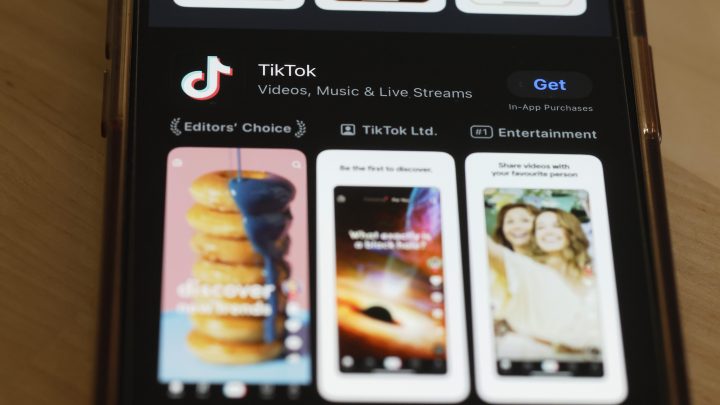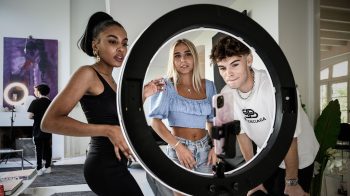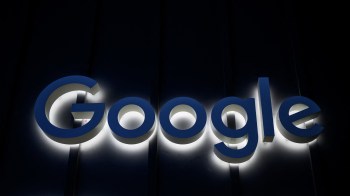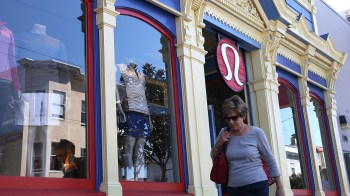
A TikTok ban would be bad news for the beauty brands that advertise on it
A TikTok ban would be bad news for the beauty brands that advertise on it

The House of Representatives passed a bill on March 13 to ban TikTok unless its parent company, ByteDance, sells the app to an American company. That bill is awaiting action in the Senate.
As TikTok awaits its fate, so do the brands that have come to rely on the app’s shareable short videos to advertise their products.
“Marketplace” host Kristin Schwab spoke with Jordyn Holman, a reporter at The New York Times, about her recent piece on the potential TikTok ban and what it would mean for the beauty and fashion industries. Below is an edited transcript of their conversation.
Kristin Schwab: So, if TikTok is banned, I imagine it will be a big blow to any company that advertises anything. But why focus on beauty and fashion brands in your story? How has TikTok become particularly important to those industries?
Jordyn Holman: So specifically for beauty retail, it’s a great platform to be able to quickly show people, “Hey, this is the newest serum or lipstick or makeup” in a quick short video, and hopefully get them to buy it. And it’s just this kind of unique platform where a lot of personality comes through. And so beauty brands have quickly gone to TikTok, and wellness and fashion brands have followed.
Schwab: Tell me more about what these campaigns look and sound like, because sometimes, at least to me, they don’t even look like advertisements, or at least, I guess, what we traditionally think of as ads.
Holman: Yeah. And that’s kind of the magic of it. Brands say you don’t have to have the celebrity or recognizable person to kind of front flaunt their product. For a lot of smaller brands, it’s the founder who’s saying, “Hey, I developed this.” There’s a lot of jokes, there’s just a lot of funny voices. And so while you’re scrolling, it kind of just falls within all of the other type of content you get on TikTok.
Schwab: I feel like that’s led to a lot of discovery. And you talk about that a bit in your piece, how it’s actually become a place where people go to shop first. Can you talk a little bit more about that?
Holman: I was talking to a influencer who’s big on TikTok. Her name is Kiara Springs, and she’s 25 years old. She mentioned, “I don’t even think about going to Google first when I’m shopping. I think about going to TikTok.” And I just thought that was such an interesting thing because for so long, Google has been the default. You know, you say you “Google it.” But for this new generation coming up, TikTok is that default. So brands see that as the place they need to be talking about what they’re selling.
Schwab: Well, it seems like part of this is you go where the people are if you’re a brand, and younger people are on TikTok. But what else drives brands there instead of traditional advertising or other social media apps?
Holman: The other thing that smaller brands in particular told me was that they liked TikTok because it’s relatively inexpensive compared to when you’re working with Google or Meta, which owns Instagram. And part of that is if they’re working with TikTok Shop, which is the specific part on the app that’s dedicated to selling things, they can do a commission structure. So, you’re only handing money over if you sell this product versus, like, this is the cost to advertise when it’s on Google or Meta. So, for smaller brands, that’s one of the reasons they like TikTok.
Schwab: Interesting, I didn’t know that. But it’s not just the Sephoras or the Ultas, right, using TikTok? There are a lot of other smaller businesses that use it. What would a ban mean for those brands?
Holman: So for the smaller businesses I talked to, it’s almost inconceivable that TikTok would go away or be banned. One woman I talked to who’s in the beauty space, she was like, “This is our marketing strategy. This is how we find new customers.” So this is right now the most formidable way that people are selling products, and it doesn’t seem like they actually have a backup plan if TikTok is banned or changes in some way.
Schwab: Well, that said, what would be the alternative if this ban happens, and how seriously are these brands preparing for a world without TikTok, whether they’re small or bigger?
Holman: So, I talked to the CEO of Frida, which is a brand that sells postpartum products and baby products. And she made a very good point. She said, “You know, algorithms change all the time on social medi. Brands have to get really nimble when it comes to that type of change. And maybe brands right now should be thinking of it in that way if something happens to TikTok.” And what she meant was, post the video you’re gonna post to TikTok instead on Instagram Reels, or maybe go on Snapchat. The reality is most of the brands play on these other platforms. But time and time again, talking to people, they’re like, “I don’t want to do that. TikTok is special. I go viral, and I find new customers in ways that other platforms don’t give me.”
There’s a lot happening in the world. Through it all, Marketplace is here for you.
You rely on Marketplace to break down the world’s events and tell you how it affects you in a fact-based, approachable way. We rely on your financial support to keep making that possible.
Your donation today powers the independent journalism that you rely on. For just $5/month, you can help sustain Marketplace so we can keep reporting on the things that matter to you.

















